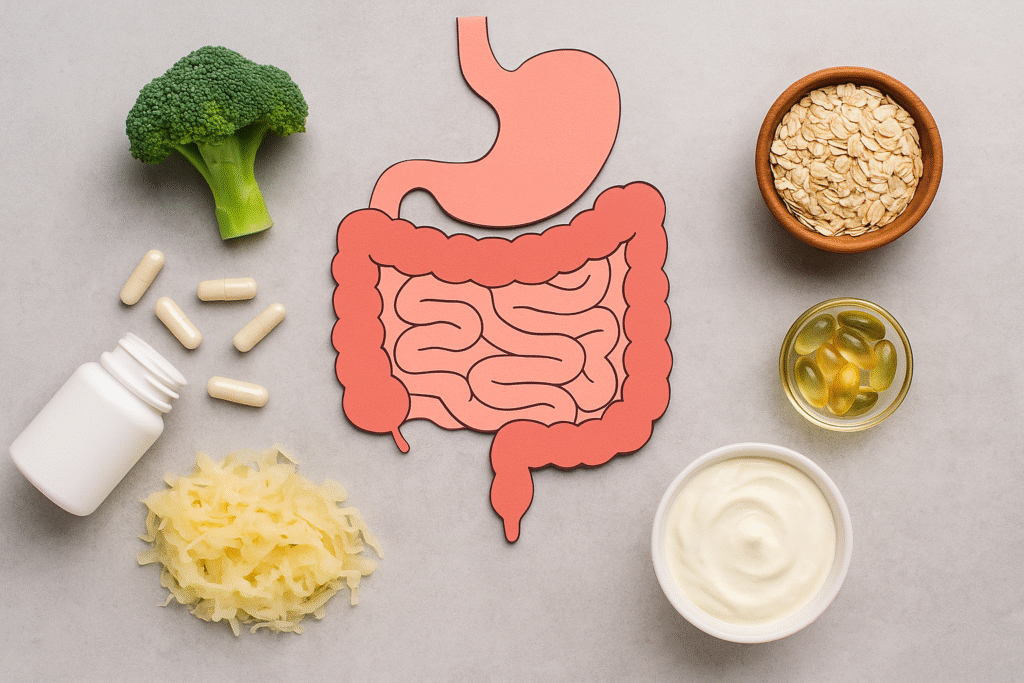Why healthy intestinal flora is so important
The intestinal flora - or microbiota - comprises trillions of microorganisms that live in our digestive tract. They not only influence digestion, but also the immune system, hormone balance, skin and even the psyche. If the balance of the intestinal flora becomes unbalanced, this can have far-reaching consequences. In this article you will find out which Intestinal flora symptoms and what the most common causes are.
What exactly is intestinal flora?
The intestinal flora consists of various strains of bacteria, viruses, fungi and other microorganisms. In a healthy state, there is a balance between "good" and "potentially harmful" germs. However, this balance can be disturbed by various influences - with noticeable consequences.
Intestinal flora symptoms: How to recognise an imbalance
1. digestive problems
- Flatulence
- Diarrhoea or constipation
- Feeling of fullness or abdominal cramps
2. frequent infections & weakened immune system
A large part of the immune system is located in the gut. A disturbed flora can lead to susceptibility to infections or chronic inflammation.
3. skin problems
- Acne, eczema or rosacea can be linked to a disturbed intestinal flora.
4. food intolerances
Sudden intolerances (e.g. to fructose, lactose or histamine) indicate a disturbed microbiota.
5. psychological changes
- Mood swings
- Irritability
- Sleep disorders or anxiety
The so-called "gut-brain axis" shows how closely gut health and the psyche are linked.
Common causes of disturbed intestinal flora
💊 Antibiotics & medication
Antibiotics destroy not only harmful but also beneficial bacteria - often with long-term consequences.
🍔 Unhealthy diet
Sugar, white flour, alcohol and highly processed foods promote the growth of unfavourable germs.
😰 Stress
Chronic stress has a direct negative effect on the composition of the intestinal flora.
Infections & parasites
Gastrointestinal infections or fungal infections can also disrupt the microbiome in the long term.
🚫 Environmental toxins & additives
Pesticides, preservatives and heavy metals put a strain on the delicate balance in the gut.
What to do in case of intestinal flora imbalance?
- Intestinal rehabilitation with probiotics & prebiotics
- FODMAP reduction or elimination diets (temporary)
- High-fibre, plant-based diet
- Stress management & sufficient sleep
- Laboratory analysis for targeted microbiome diagnostics
Conclusion: take intestinal flora symptoms seriously
Impaired intestinal flora can manifest itself in many different ways - from digestive problems to skin conditions and mental exhaustion. Whoever Intestinal flora symptoms recognises this early on and takes targeted countermeasures can improve not only their digestion, but also their overall health. The path to inner balance begins in the gut.
